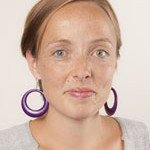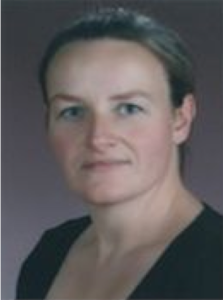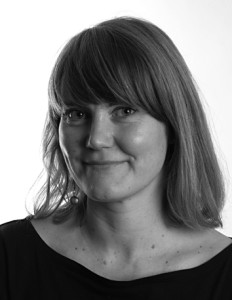In June 2012 the University of Bergen will organise a PhD conference on BSRS-related themes. The title of the conference is Transnational migration and global development.
IMER Bergen 15 year anniversary conference and PhD course.
International migration and attendant processes of globalization, both as social phenomena and in efforts at theorization, have become especially critical for the development of social theory and analysis, notably by challenging some of the fundamental questions of the social sciences. If one wishes, as Georg Simmel did, to answer the question “How is society possible?”, one cannot take for granted that the relevant object is defined within the parameters of the nationstate, nor by those of ´ethnic groups´ or ´cultures´.
In a recent evaluation report on Norwegian sociology research, it is stated that ´[t]he key question to be explored by sociology today is not, perhaps, how society is possible, but rather how to study social processes and changes at local, national and global levels (Sociological research in Norway: An evaluation, p. 17). Across the social science disciplines, it now seems impossible to imagine place, society and culture without the mobilities of people, goods and information – thus recasting questions exploring e.g. social stratification, scale, space, media and politics.
In its 15 years of existence, IMER Bergen has directed its collaborative efforts towards examining, but also reframing the fundamental questions of the social sciences, as variously defined within particular disciplines. To celebrate this 15th anniversary, we want to put to the forth the contributions that IMER research in Bergen, but also in the wider international scholarly community, has made to the study of society in general, processes of social change and new social formations in particular.
A combination of international and local scholars will in the course of a two day seminar, discuss how IMER researchers deal with issues such as migration, globalization and transnational movements – how they examine ‘culture’, ´politics´, ´space´, ´gender´, ´media´, ´government´ and ´law´ – through the prism of International Migration and Ethnic Relations.
A commitment to provide a strong and creative scholarly environment for students and research recruits has been one of IMER Bergen´s main vocations. In this spirit, the 15th anniversary comprises a PhD course for candidates within the humanities and social sciences. In addition to the main conference, the course component of the conference will be constituted by workshop sessions with essay presentations. The candidates are expected to send an essay abstract of maximum 1 page, including a few words about the PhD project, previous to the course. Participating PhD students that after submitting a post-conference paper get their work accepted, will be awarded 10 ETCS credits.
The obligatory curriculum of 5-700 pages is a collection of central texts which deal with core questions of the Social Sciences related to the field of migration and globalization, and will emphasize the work of the invited lecturers. The essays are expected to reflect knowledge and comprehension of the course curriculum. READING LIST
The conference and course participants will also be invited to attend the anniversary performance lecture ´Crossing Borders´ with the performance artist Tanja Ostojic, organized in co-operation with the Art Gallery Stiftelsen 3,14.
The conference and PhD course is organized by IMER Bergen and the Department of Social Anthropology, UiB and in collaboration with Uni Rokkansenteret, the Department of Comparative Politics, the Department of Geography, the Department of Sociology, and SKOK (Center for Women´s and Gender Studies) at the University of Bergen.
Lecturers
Yngve G Lithman (University of Bergen) Bruce Kapferer (University of Bergen) David Ley (University of British Columbia): Masters of Space, or Prisoners of Space? Locating the Neoliberal Migrant Laura Agustín (Independent scholar) André Iteanu (Centre National de la Recherche Scientifique (C.N.R.S.), Paris): The Free Noble and the Poor Beggar Nina Glick Schiller (University of Manchester) Susi Meret (University of Aalborg) Mette Andersson (University of Bergen): ”Reflexive Transnationalization” among Socially Engaged Minority Youth Hakan Sicakkan (University of Bergen): The Politics of Diversity, the European Publics, and the European Public Sphere Randi Gressgård (University of Bergen): Equality Equals Hierarchy – the Holistic Foundation of Liberal Ideology and Integration Policy Elisabeth Eide (Oslo University College and University of Bergen): Media discourses, migration and post-22.7-debates; a critical inquiry Christine M Jacobsen (Uni Research and University of Bergen): The (not so) New Islamic Presence in Western Europe: Secular Governance and Religious Freedom in a Globalized Era
REGISTRATION to Hanna Skartveit by 20 October 2011. Abstract deadline: 1 November 2011. Essay deadline: 10 January 2012.
IMER Bergen together with the Dept. of Sociology is organizing the PhD Course.
IMER Bergen 15 year anniversary conference and phd course
En overraskende forskningsferd Yngve Lithman har opplevd både trams, trassel og larmerier av alle slag som leder for IMER gjennom 12 år. Men mest av alt har det vært en intellektuelt overraskende reise. I dag fyller migrasjonssatsingen 15 år. (Intervju med Yngve G. Lithaman i anledning IMER Bergens 15 års jubileum)
De nye jødene Elisabeth Eide tror ikke på at historien gjentar seg selv, men ser likevel mange likhetstrekk mellom 1940-tallet og i dag. Forskjellen er at muslimene er de nye jødene. (Intervju med Elisabeth Eide i anledning IMER Bergens jubileumskonferanse)
Misplaced women On Tuesday November 8 from 13:40 I performed my “Misplaced Women?” at arrivals & departures terminal of Bergen international airport. In approximately 30 minutes time I took out the entire contents of my two suitcases, out of my handbag as well as out of my cosmetics and make-up bags. (Read more and see the photos from the performances in Bergen previous to Tanja Ostojic’s performance lecture at Gallery 3,14)
***********************
International migration and attendant processes of globalization, both as social phenomena and in efforts at theorization, have become especially critical for the development of social theory and analysis, notably by challenging some of the fundamental questions of the social sciences. If one wishes, as Georg Simmel did, to answer the question “How is society possible?”, one cannot take for granted that the relevant object is defined within the parameters of the nationstate, nor by those of ´ethnic groups´ or ´cultures´.
In a recent evaluation report on Norwegian sociology research, it is stated that ´[t]he key question to be explored by sociology today is not, perhaps, how society is possible, but rather how to study social processes and changes at local, national and global levels (Sociological research in Norway: An evaluation, p. 17). Across the social science disciplines, it now seems impossible to imagine place, society and culture without the mobilities of people, goods and information – thus recasting questions exploring e.g. social stratification, scale, space, media and politics.
In its 15 years of existence, IMER Bergen has directed its collaborative efforts towards examining, but also reframing the fundamental questions of the social sciences, as variously defined within particular disciplines. To celebrate this 15th anniversary, we want to put to the forth the contributions that IMER research in Bergen, but also in the wider international scholarly community, has made to the study of society in general, processes of social change and new social formations in particular.
A combination of international and local scholars will in the course of a two day seminar, discuss how IMER researchers deal with issues such as migration, globalization and transnational movements – how they examine ‘culture’, ´politics´, ´space´, ´gender´, ´media´, ´government´ and ´law´ – through the prism of International Migration and Ethnic Relations.
A commitment to provide a strong and creative scholarly environment for students and research recruits has been one of IMER Bergen´s main vocations. In this spirit, the 15th anniversary comprises a PhD course for candidates within the humanities and social sciences. In addition to the main conference, the course component of the conference will be constituted by workshop sessions with essay presentations.
Programme
Wednesday 9 November Anniversary conference. OPEN LECTURE:
Venue: ‘Egget’, Parkveien 1: 10.15-10.30: Official opening with Dean of the Faculty of Social Sciences, Knut Helland, and Director of the Uni Rokkan Centre, Jan Erik Askildsen. 10.30-12.00: • DAVID LEY (University of British Columbia): “Masters of Space, or Prisoners of Space? Locating the Neoliberal Migrant” • YNGVE G. LITHMAN (University of Bergen): ”De-Etatizing Social Science?: “Verstehen” and “Erklärung” in a (somewhat) Flatter Earth”
Chair: Edvard Hviding (Department of Social Anthropology, University of Bergen)
12.15-13.15: Lunch.
Venue: Auditorium, Bergen Resource Centre, Jekteviksbakken 31: 13.15-14.45: • HAKAN G. SICAKKAN (University of Bergen): “The Politics of Diversity, the European Publics, and the European Public Sphere”
• METTE ANDERSSON (University of Bergen): “‘Reflexive Transnationalization’ among Politically Engaged Minority Youth” [Read interview with Mette Andersson in På Høyden 7 November]
Chair: Susanne Bygnes (Department of Sociology, University of Bergen)
14.45-15.00: Coffee break.
15.00-16.30:
• RANDI GRESSGÅRD (University of Bergen): “Equality Equals Hierarchy – the Holistic Foundation of Liberal Ideology and Integration Policy” • BRUCE KAPFERER (University of Bergen): ”The Tamil Crisis: State, War and Peace in Sri Lanka and Shifts in Global Power”
Chair: Kathinka Frøystad (Department of Social Anthropology, University of Bergen)
Thursday 10 November Anniversary Conference. Venue: Auditorium, Bergen Resource Centre, Jekteviksbakken 31:
10.15-11.45:
• CHRISTINE M. JACOBSEN (Uni Research and University of Bergen): “The (not so) New Islamic Presence in Western Europe: Secular Governance and Religious Freedom in a Globalized Era” • ANDRÉ ITEANU (Centre National de la Recherche Scientifique (C.N.R.S.), Paris): “The Free Noble and the Poor Beggar. What does the Veil Controversy Reveal about French Ideology”
Chair: Synnøve Bendixsen (IMER Bergen and Uni Rokkan Centre)
12.00-13.00: Lunch.
13.00-14.30: • SUSI MERET (University of Aalborg): “Exploring the Social, Political and Cultural Challenges of Right Wing Populism in the Nordic Countries: Comparative Approaches, Developments and Perspectives”
• ELISABETH EIDE (Oslo University College and University of Bergen): “Media Discourses, Migration and Post-22.7-Debates; a Critical Inquiry”
Chair: Elisabeth Ivarsflaten (Department of Comparative Politics, University of Bergen)
14.30-14.45: Coffee break.
14.45-16.30: PANEL DISCUSSION: “The Future of IMER Research”
David Ley (University of British Columbia) Susi Meret (University of Aalborg) Hilde Lidén (Nordic Migration Research and Institute for Social Research, Oslo) Yngve G. Lithman (IMER Bergen and University of Bergen) Mette Andersson (IMER Bergen and University of Bergen) Hakan G. Sicakkan (IMER Bergen and University of Bergen)
Chair: Yngve G. Lithman (IMER Bergen and Department of Sociology, University of Bergen)
* * *
19:00: Performance lecture by artist TANJA OSTOJIC: “Crossing Borders“. Venue: Galleri 3,14. Vågsallmenningen 12. Free entrance. Refreshments will be served. In addition, her project “Misplaced Women? Marking the City” is a series of performances, interventions and delegated performances which will take place in the public space of Bergen previous to the lecture. In collaboration with the International Contemporary Art Foundation 3,14. Friday 11 November PhD course. PhD candidates, please see the Course Site for more information.
Venue: Seminar room, Uni Rokkan Centre, Nygårdsgt. 5, 6th floor. 10:15-16:30: Essay presentations. Conference fee: Nok 500,- for two days (includes lunch) Students: Nok 300,- REGISTRATION to Hanna Skartveit. Still possible to register!
The Conference is organised in collaboration with Uni Rokkan Centre, Dept. of Social Anthropology, Dept. of Sociology, Dept. of Geography, Dept. of Comparative Politics and SKOK, University of Bergen.
Halvar A. Kjærre: “Politics and Mobilities”
Tarje I. Wanvik: “Migration and Social Inequalities”
Halvar A. Kjærre (Department of Social Anthropology, UiB) and Tarje I. Wanvik (Department of Geography, UiB) have recently been recruited to the IMER Bergen research unit as PhD candidates.
In this seminar they will present their PhD projects. After the presentation there will also be a presentation of IMERS new webpages.
Ida Tolgensbakk – Swedish migrants in Norwegian media and popular culture
In this seminar Ida Tolgensbakk will present some findings from her PhD research on young, Swedish labor migrants in Oslo. In everyday encounters in Norway, the young Swedes are identified as such primarily through linguistic characteristics, and not for instance skin color, phenotype, or dress. That is, they are audible rather than visible migrants. Tolgensbakk will discuss what kind of consequences this has on the lives of the young Swedes, as well as look into the related questions of how the young Swedes are presented in Norwegian media and popular culture.
Ida Tolgensbakk
Department of cultural studies and oriental languages, UiO. Ida Tolgensbakk has a master in folklore studies from 2005 (on national identity in the Faroe Islands). She worked three years at the Norwegian Institute of Local history, mainly focusing on migrant’s life stories. She is now studying young, Swedish labor migrants moving to Oslo. Her research is based on life story interviews, fieldwork on a Facebook group, and texts from popular culture and the media.
Read more here: http://www.hf.uio.no/ikos/english/people/aca/idatol/
Communicating Migration Seminar Series IMER Bergen spring and autumn 2014
The IMER seminar series for 2014 will cover how migration and ethnic relations are communicated in every-day encounters, in mass and social media, in politics and in teaching at the universities. Has the way people talk about migration and migrants in different social contexts changed over time, and in which ways has it changed? How does migration theory and research fit in with other topics and theories in the social sciences, and how do results from migration research inform public debate and policy development? Communicating migration will be discussed from various angles in our seminar series on international migration and ethnic relations during spring and autumn 2014. We welcome papers that touch upon this broad theme from different angles. Historical analyses of change over time in regard to politics and public debate, research foci and disciplinary concerns are specifically welcomed. The seminar series will end with a two-day conference in October/November 2014.
BSRS 2014 Governance to meet Global Development Challenges
Welcome to BSRS2014!
The theme for BSRS2014 is Governance to meet Global Development Challenges. The event will take place from June 23rd to July 4th 2014 at the University of Bergen. Please find information about the courses, application form and other activities at the menu to your right side.
One of the courses is and IMER/SKOK PhD course.
Read more at:
http://www.uib.no/rs/bsrs/programme/bsrs-2014-governance-to-meet-global-development-challenges
 How might we think about race as a paradoxically fungible yet persistent feature of human history? This mini seminar examines race as a global phenomenon with long and diverse histories. In its migrations, conceptions of race have repeatedly been marshaled, decried, dismissed, and repurposed, reformulating conceptions of kinship and social organization along the way. From ancient empires, medieval religious conflicts, and early modern accounts of “barbarians” and “strangers” to the longue durée of colonial settlement and slavery, and from the revolutions and uprisings of the eighteenth, nineteenth, and twentieth centuries to more recent accounts of physiognomy, eugenics, and DNA, the phenomenon of race has interacted dynamically across time and space with conceptions of caste, color, class, language, identity, law, region, and religion. Our class will begin with a conventional genealogy of race as arising from the age of Atlantic Revolutions, the slave trade, and scientific thinking in Europe and the United States before complicating our understandings of the phenomenon as one shaped over centuries of contact and interchange. Our second session will examine a longer history of race and caste in relation to Iberian colonization of the East and West Indies and our third session will investigate race and the littoral in Indian Ocean studies. Registration deadline is August 8th, 2014.
How might we think about race as a paradoxically fungible yet persistent feature of human history? This mini seminar examines race as a global phenomenon with long and diverse histories. In its migrations, conceptions of race have repeatedly been marshaled, decried, dismissed, and repurposed, reformulating conceptions of kinship and social organization along the way. From ancient empires, medieval religious conflicts, and early modern accounts of “barbarians” and “strangers” to the longue durée of colonial settlement and slavery, and from the revolutions and uprisings of the eighteenth, nineteenth, and twentieth centuries to more recent accounts of physiognomy, eugenics, and DNA, the phenomenon of race has interacted dynamically across time and space with conceptions of caste, color, class, language, identity, law, region, and religion. Our class will begin with a conventional genealogy of race as arising from the age of Atlantic Revolutions, the slave trade, and scientific thinking in Europe and the United States before complicating our understandings of the phenomenon as one shaped over centuries of contact and interchange. Our second session will examine a longer history of race and caste in relation to Iberian colonization of the East and West Indies and our third session will investigate race and the littoral in Indian Ocean studies. Registration deadline is August 8th, 2014.
More info:
http://www.uib.no/skok/77000/phd-kurs-rase-migrasjon-og-slektskap
http://www.uib.no/en/skok/77008/graduate-course-race-migration-and-kinship
Mistillitens migrasjon: Europeisk sør-nord mobilitet i kjølvannet av krisa
Tema for innlegget er den nye Europeiske sør-nord migrasjonen. Den empiriske analysen er basert på dybdeintervjuer med noen av dem som har reist fra Spania til Norge etter kriseåret 2008. Innlegget vil belyse hvordan sør-nord migrasjonen i kjølvannet av krisa er mer enn en desperat flukt fra arbeidsledighet i hjemlandet. Den vidtrekkende mistilliten til det politiske systemet og følelsen av en dyptgripende håpløshet i hjemlandet er viktige migrasjonsfaktorer i tillegg til jobbmuligheter for dem som kommer til Norge.
Susanne Bygnes (phd) er postdoktor ved universitetet i Bergen. Hun leder det fireårige prosjektet Labour Migration in Uncertain Times: Migration from Spain to Norway after 2008, finansiert av forskningsrådets VAM-program. Hun har publisert en rekke internasjonale artikler på tema som mangfold og likestilling, blant annet Ambivalent Multiculturalism (2012) i tidsskriftet Sociology.
IMER Lunch: Astrid Ouahyb Sundsbø – Social mixing policies: What You Want and What You Get
In the public debate and contemporary social policies in Norway as well as in other countries, concentrations of “immigrants” in certain areas of a city are considered to be unfortunate and something which needs to be fought against (see i.e. Gakkestad 2003; Akerhaug 2012). It is anticipated that spatial concentrations of “immigrants” enforces the social isolation of “immigrants” and triggers criminal activities, among other aspects. This becomes very obvious when a “high percentage of immigrants” in an area serves as basis for referring to that area as a “ghetto” or “insecure” (see i.e. Sæter 2005; Vassenden: 2007; cf. Akerhaug 2012).
In this lunch seminar, the idea of social mixing, which is not just common in the general public debate but also a manifested major urban policy and planning goal (Sæter & Ruud 2005; Huse, Sæter & Aniksdal 2010; cf. Musterd 2005) will be discussed. By using some illustrations both from the academic debate as well as own empirical work, it is shown that it is necessary to be critical about this concept.
It is referred to literature arguing that there is a lack of empirical evidence showing that the residential segregation of “immigrants” has any effect at all, for instance on “integration” and crime (for instance Musterd 2005; Galster 2007; Lees 2008). Furthermore, it is discussed that the imagination of social mixing as an ideal way to tackle the “multicultural challenge” might be founded on a highly problematic understanding of “immigrants“ and their norms and values as inherently “bad” (cf. Eriksen 1996: 51). This is shown by drawing on statements from interviews with members from the majority population residing in Oslo.
Astrid Ouahyb Sundsbø
 Astrid Ouahyb Sundsbø (PhD) is a postdoctoral research fellow at the Georg-Simmel Center for Metropolitan Studies in Berlin. She holds a doctoral degree in sociology from the Humboldt-University of Berlin (2012). From 2012-2014 she worked as a postdoctoral researcher at the Center for a Sustainable University at the University of Hamburg. Her main fields of research compromise: Social inequality, residential segregation in cities, migration and interethnic relations. Her most recent publication is Grenzziehungen in der Stadt. Ethnische Kategorien und die Wahrnehmung und Bewertung von Wohnorten (Springer VS, 2014) where it is discussed whether ethnic boundary making on the side of the majority population could be a possible explanation for the residential concentration of immigrants in Berlin and Oslo.
Astrid Ouahyb Sundsbø (PhD) is a postdoctoral research fellow at the Georg-Simmel Center for Metropolitan Studies in Berlin. She holds a doctoral degree in sociology from the Humboldt-University of Berlin (2012). From 2012-2014 she worked as a postdoctoral researcher at the Center for a Sustainable University at the University of Hamburg. Her main fields of research compromise: Social inequality, residential segregation in cities, migration and interethnic relations. Her most recent publication is Grenzziehungen in der Stadt. Ethnische Kategorien und die Wahrnehmung und Bewertung von Wohnorten (Springer VS, 2014) where it is discussed whether ethnic boundary making on the side of the majority population could be a possible explanation for the residential concentration of immigrants in Berlin and Oslo.


